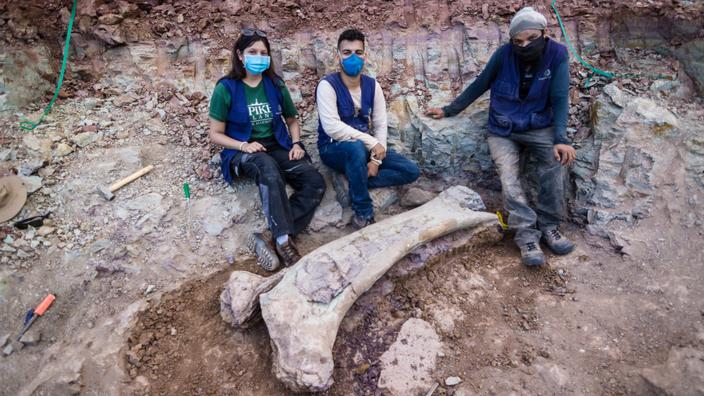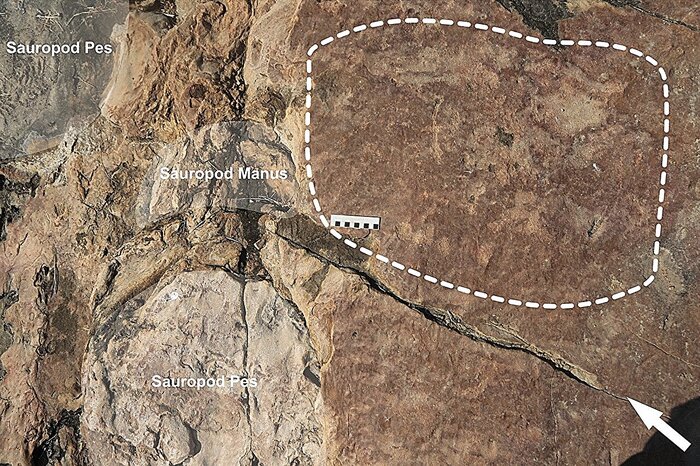The National Museum of Rio de Janeiro announced Thursday, November 18, the discovery of a new species of "
very rare
"
dinosaur
, a "
toothless
"
theropod
that lived in southern Brazil 70 to 80 million years ago.
Named "
Berthasaura leopoldinae
", this small dinosaur about 1 meter long and 80 centimeters high was identified from a set of fossils found during excavations in the state of Parana, between 2011 and 2014.
Read alsoDinosaurs were in decline before the fatal impact
Theropods are bipedal dinosaurs, usually carnivorous or omnivorous, and provided with teeth.
But this one "
had a beak, and no tooth, unlike all the other species discovered in Brazil so far,
" said the National Museum in a statement.
The study, carried out jointly with the Paleontological Center of Contestado, in the state of Santa Catarina (south), was published Thursday in the scientific journal Nature.
"We have remains of the skull, jaw, spine, pelvic and pectoral girdles, and front and rear limbs," explained a paleontologist.
AMAI FOTOGRAFIA / REUTERS
Particularly well preserved fossils
Paleontologist Alexander Kellner, director of the National Museum, pointed out that the fossils were particularly well preserved.
"
We have skull, jaw, spine, pelvic and pectoral girdles, and fore and hind limbs remains, which makes 'Bertha' one of the most complete Cretaceous dinosaurs ever discovered in Canada. Brazil,
”he explained at a press conference.
Read alsoThe eggs of the first dinosaurs were "soft"
According to paleontologists, the fact that this species does not have a tooth is "
a real surprise
" which raises many questions about its diet. “
Maybe he ate differently from other theropod dinosaurs, but just because he doesn't have a tooth doesn't mean he can't eat meat,
” said Geovane Alves de Souza, one of the study's authors.
The name “
Berthasaura leopoldinae
” was chosen as a tribute to Bertha Luz, Brazilian scientist and researcher at the National Museum, and to Empress Maria Leopoldina, wife of Emperor Pedro I of Brazil and patron of natural science studies.
The National Museum, the largest natural history museum in Latin America, was destroyed by a terrible fire in September 2018, and priceless collections went up in smoke, including paleontological treasures.
Reconstruction work started last week and is expected to be completed in 2026.


/cloudfront-eu-central-1.images.arcpublishing.com/prisa/DGAXPTVHVNGTDKDEMOMYHMEFHI.jpg)









